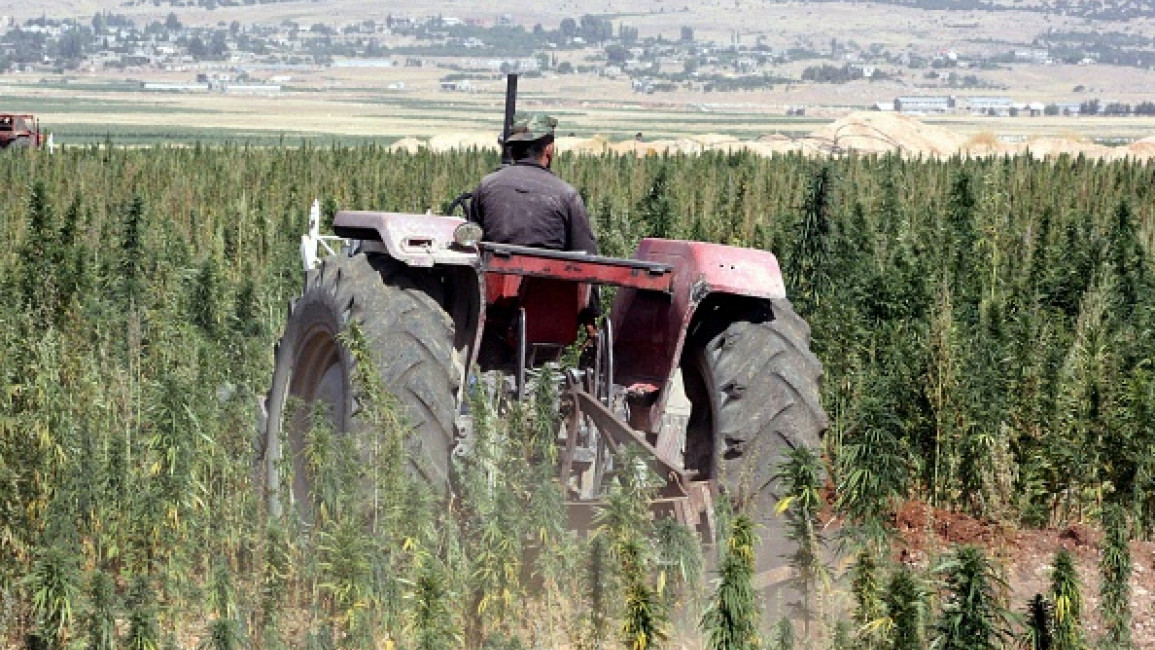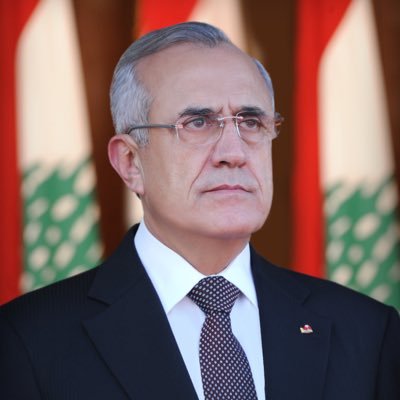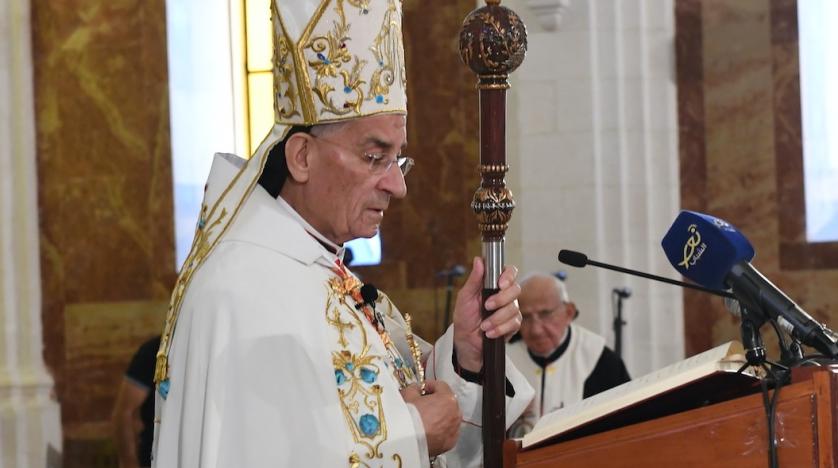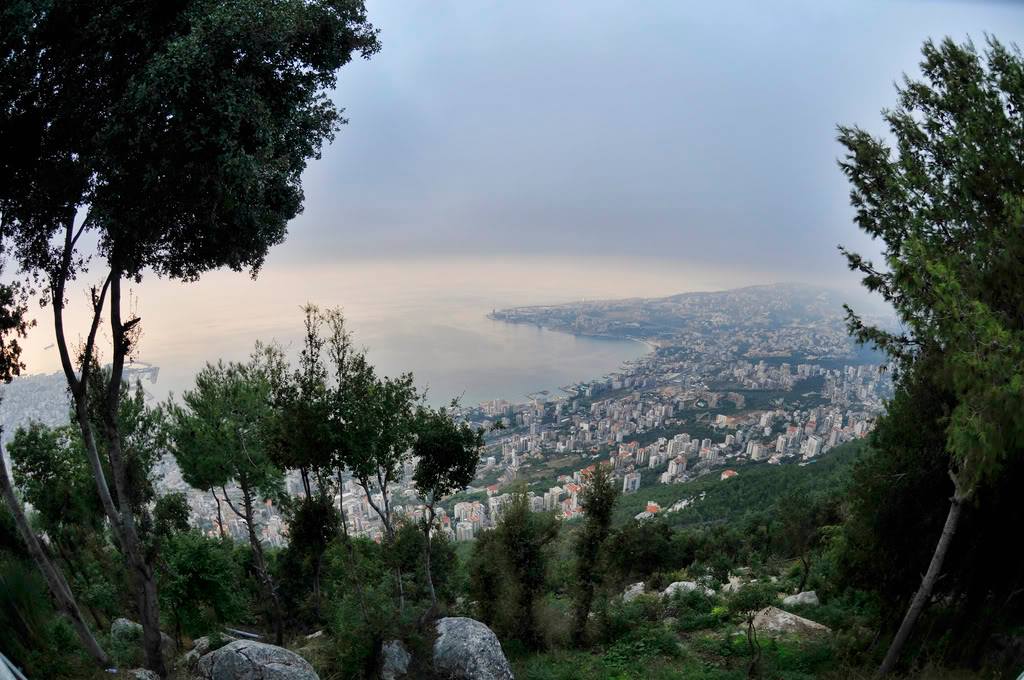
By Najia Houssari -- arabnews.com -- BEIRUT: Lebanese President Michel Aoun stressed on Monday that Lebanon is “committed to carrying out the required reforms,” but said the country “needs the IMF’s program within the limits of its applicability in Lebanon.” Aoun’s stance coincided with a warning by caretaker Prime Minister Najib Mikati for “the international community to cooperate with Lebanon to secure the return of Syrian refugees to their country, or else Lebanon will work to get Syrians out through legal means and the firm application of Lebanese law.” Aoun met with the newly appointed representative of the International Monetary Fund in Beirut, Federico Lima, who called for a speedy adoption of reforms, including capital controls, banking secrecy and other measures related to restructuring the financial sector.
In April, Lebanon and the IMF signed a staff-level agreement, a mutual declaration of intent between the IMF mission and the Lebanese negotiating delegation. However, before the signing, Lebanon needs to meet all the conditions set by the IMF. Lebanon is politically divided over the adoption of the required reforms, particularly the economic recovery plan, the establishment of the independence of the judiciary and the development of a credible plan for the electricity sector, keeping the sector away from brokerage and quotas, distribution and service projects. The country has failed to implement the IMF’s terms for the past two years, since the start of talks. Conditions include, for example, the consolidation of the Banque du Liban’s exchange rates, the development of a clear strategy for restructuring public debt in the medium and long term, the development of an agreed strategy for restructuring the banking sector, and an audit of the bank’s budgets, which determine its financial position and its remaining liquidity in foreign currencies, so as to develop transparency.

by nidaalwatan.com -- ألان سركيس --
يأتي الرئيس ميشال سليمان في ترتيب الرئيس العاشر الذي وصل إلى كرسي الرئاسة بعد الإستقلال وحَكَم، والرئيس الـ12 الذي انتُخب لأن هناك رئيسَين استشهدا وهما الرئيس الشهيد بشير الجميل والرئيس الشهيد رينه معوّض، فشكّل عهده مرحلة إنتقالية، إذ إنه الرئيس الأول الذي انتُخب بعد خروج الإحتلال السوري، استلم دفّة الرئاسة من الفراغ بعد إنتهاء ولاية الرئيس إميل لحود الممدّدة، ولم ينجح مجلس النواب في ربيع 2014 في انتخاب رئيس وبذلك فقد تسلّم الفراغ الرئاسي زمام الحكم في بعبدا.
لا يمكن إجراء تقييم نهائي لعهد الرئيس سليمان حالياً لأن التاريخ هو الكفيل بالحكم، لكن الأكيد أن عهده هو الأفضل بعد توقيع «اتفاق الطائف»، فقدّ سلّم بلداً فيه أقلّه حدّ أدنى من المؤسسات، مصارفه لا تعرف لمن تسلّف وتمنح القروض، جيشه ومؤسساته الأمنية والعسكرية صامدة في وجه «الدويلة»، القضاء محافظ على هيبته، سياسة البلد الخارجية متوازنة والدول العربية تحتضن لبنان المنفتح على كل دول العالم ويزوره أهم الرؤساء والشخصيات العالمية أمثال البابا بنديكتوس السادس عشر، وخطاب الرئيس في آخر سنة من عهده كسر المحرّمات، وأصابت سهامه معادلة «حزب الله» الثلاثية، أي «جيش وشعب ومقاومة»، وأطلق عليها اسم المعادلة «الخشبية»، ونجح في رسم خريطة طريق تنطلق من مبدأ «إعلان بعبدا»، كل ذلك حصل على رغم انطلاق الربيع العربي والأزمة السورية، لكن بعد مرور نحو 8 سنوات وشهر على نهاية عهد سليمان، وبعد استلام الرئيس ميشال عون زمام الرئاسة بعد سنتين ونصف السنة من الفراغ، ها هو لبنان يعيش الجحيم الحقيقي، أموال الناس في المصارف سُرقت، الدولة أفلست، الصروح التعليمية تعثرت والنظام الإستشفائي ضُرب، لبنان معزول عربياً ودولياً ودخل في صلب محور «الممانعة»، وانقلب عهد الإزدهار إلى عهد «جهنم» والنهاية كانت أن رئاسة الجمهورية تُغطّي «الدويلة» التي تنهش الدولة، فبات البلد يعيش في جهنّم وعصفورية.

by aawsat.com -- Beirut - Asharq Al-Awsat Lebanon's Maronite Patriarch Beshara al-Rai called for the formation of a new government, asserting his rejection of a "caretaker government," "constitutional vacuum," and "presidential vacancy." Speaking after the Maronite Church's Synod of Bishops' spiritual exercise, Rai called on civil and political officials to resolve the issue of the government and prepare for electing a new president without delay. Rai said it is time to decide whether "we are worthy of this nation and its pluralistic composition."
He indicated that the political parties are irresponsible and disregard people's sufferings and the fate of Lebanon." "This is a delicate stage that calls for choosing a credible prime minister who has the experience, knowledge, and wisdom in public affairs capable of forming a cabinet with the President of the Republic as soon as possible to take urgent decisions, the first of which is to initiate vital and expected reforms," asserted the Patriarch. He called on the international community to help Lebanon by finding a solution to the presence of Palestinian refugees and displaced Syrians on Lebanese soil, stressing that "the human and brotherly feelings that we have for these two brotherly peoples do not nullify the national thinking in the interest of Lebanon."
Rai noted that it could not be accepted that many parties, especially at the international level, consider refugees and displaced persons a reality that must be adapted to the point of integration, settlement, and naturalization. He wondered how some countries can claim they are keen on maintaining Lebanon's independence and stability while they work to undermine its unity. "This is a destructive logic that will inevitably undermine Lebanon's unity and force us to confront it to save Lebanon's entity, its current constitution, and its charter formula." He called on the Lebanese state to make an exceptional effort by negotiating with the Palestinian Authority, the Arab League, the United Nations, and major countries to redeploy the refugees in countries capable of accommodating them. He also stressed that the time has come for the displaced Syrians to return and build their homeland.

by middleeasteye.net -- By Marie de La Roche Saint-André in Beirut -- The lack of state regulation of growing urbanisation in Lebanon has led to an anarchic expansion and degradation of the country's natural heritage at a time of chronic political and economic unrest. Lebanon is one of the most urbanised countries in the world: 88.76 percent of its population is living in or near existing built-up areas, according to a UN report. The report, published in 2021 by the United Nations Human Settlements Programme (UN-Habitat), attributes the problem partly to the fact that the Lebanese state has had a "laissez-faire" policy when it comes to development, but it also highlights a number of other factors that aggravate the situation. These include limited local planning regulations and the absence of urban policies, the formation of informal, slum-like, areas on the outskirts of cities, the illicit use of public properties, alongside the progressive loss of green spaces, natural resources, and biodiversity.
The phenomenon is not new. As early as the 1950s, there was already an increase in illegal construction due to urban pressure, the influx of mainly internal refugees, and an unstable political context. The irregular district of Ghobeiry in the southern suburbs of Beirut bears particular witness to this phenomenon. After the crisis of 1958, which was caused by political and religious tensions, the district suffered its first wave of public land occupation. The Lebanese civil war (1975-1990) exacerbated the problem under the command of the municipality led by the Shiite Amal movement, in particular, because of the influx of refugees. Where bordered by the sea, slums now stretch for several kilometres along the coast.
Khazen History


Historical Feature:
Churches and Monasteries of the Khazen family

St. Anthony of Padua Church in Ballouneh
Mar Abda Church in Bakaatit Kanaan
Saint Michael Church in Bkaatouta
Saint Therese Church in Qolayaat
Saint Simeon Stylites (مار سمعان العامودي) Church In Ajaltoun
Virgin Mary Church (سيدة المعونات) in Sheilé
Assumption of Mary Church in Ballouneh
1 - The sword of the Maronite Prince
2 - LES KHAZEN CONSULS DE FRANCE
3 - LES MARONITES & LES KHAZEN
4 - LES MAAN & LES KHAZEN
5 - ORIGINE DE LA FAMILLE
Population Movements to Keserwan - The Khazens and The Maans
ما جاء عن الثورة في المقاطعة الكسروانية
ثورة أهالي كسروان على المشايخ الخوازنة وأسبابها
Origins of the "Prince of Maronite" Title
Growing diversity: the Khazin sheiks and the clergy in the first decades of the 18th century
Historical Members:
Barbar Beik El Khazen [English]
Patriach Toubia Kaiss El Khazen(Biography & Life Part1 Part2) (Arabic)
Patriach Youssef Dargham El Khazen (Cont'd)
Cheikh Bishara Jafal El Khazen
Patriarch Youssef Raji El Khazen
The Martyrs Cheikh Philippe & Cheikh Farid El Khazen
Cheikh Nawfal El Khazen (Consul De France)
Cheikh Hossun El Khazen (Consul De France)
Cheikh Abou-Nawfal El Khazen (Consul De France)
Cheikh Francis Abee Nader & his son Yousef
Cheikh Abou-Kanso El Khazen (Consul De France)
Cheikh Abou Nader El Khazen
Cheikh Chafic El Khazen
Cheikh Keserwan El Khazen
Cheikh Serhal El Khazen [English]
Cheikh Rafiq El Khazen [English]
Cheikh Hanna El Khazen
Cheikha Arzi El Khazen
Marie El Khazen